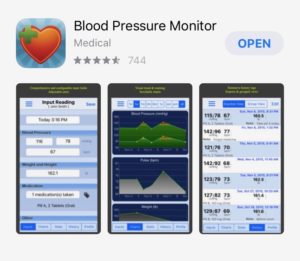Here are eight most important things you should know if you have high blood pressure.
The first thing you must know is how to accurately use a home blood pressure monitor. If you don’t know by now, I will tell you a simple fact. Home blood pressure measurements are the most accurate blood pressure measurement if done right with an Omron arm cuff monitor or a similar monitor.
Office blood pressure monitoring is inaccurate at best due to the potential for white coat syndrome or masked hypertension. Although blood pressure measurement is an important vital sign, the average medical office is too busy to use the technique recommended by the 2017-hypertension guidelines. https://amzn.to/2KgVZ9S
The second thing you must know is your blood pressure target goal. You need to know what blood pressure number is best for you because the number recommended for the general public might be too high. For example, if you are 50 years old or older, the 2017 hypertension guidelines recommend a target goal of less than 120/80 mm Hg.

The third thing you must know is how to log your blood pressure on paper or in an app. Measuring your blood pressure at home is BEST WHEN YOU SHARE YOUR NUMBERS with your health care provider. Don’t just bring the good numbers. Measure consistently and bring the numbers that you get.

The forth thing you must know is what to do when your blood pressure is elevated severely, moderately, or slightly. You would do something different for each one of these levels. These levels may be known as emergent (severely elevated), urgent (moderately elevated) and non-urgent (slightly elevated).
The fifth thing you need to know is what to eat. This is probably one of the most important things you must know because it may determine everything about you blood pressure. What you eat affects your blood pressure.
In fact, research has shown that what you put in your mouth makes a difference between having a chronic disease and not. Dr. Greger explains it best in this video. The video is a bit lengthy but he makes it very entertaining.
The sixth thing you need to know is the name and dose of your blood pressure medication. Many times patients come to the clinic or hospital and they do not remember the name or dose of their medication. This is not helpful to their health care provider and could result in the wrong dose adjustment. Knowing that the color or size of the pill won’t give much information either because there are some many variations to the same medication.
Make a medication list for your wallet or purse. Get an index card and writhe the name and dose of your medication on it and keep it with you at all times. You may also store your medication name and dose in the blood pressure log app.
The seventh thing you must know is how to reach your health care provider office after hours. Most people do not know that they may call their doctor after hours and there will be a nurse or provider to advise them after hours. You can ask your provider how to do this on your next visit or you may call doing business hours to inquire about this.
The eight thing that you must know is your pharmacy name and number. This will be useful information if your blood pressure was too high or low and your provider needed to make a medication dose adjustment. Keep your pharmacy’s name and number in your contacts on your cell phone.
Now you know what you must know. What are you going to do about it?
Resources
Breaux-Shropshire, T. L., Judd, E., Vucovich, L. A., Shropshire, T. S., & Singh, S. (2015). Does home blood pressure monitoring improve patient outcomes? A systematic review comparing home and ambulatory blood pressure monitoring on blood pressure control and patient outcomes. Integr Blood Press Control, 8, 43-49. Retrieved from https://www.ncbi.nlm.nih.gov/pmc/articles/PMC4498728/
Nutrition Facts https://nutritionfacts.org/
https://amzn.to/2WLPCCs
Forks Over Kniveshttps://amzn.to/2WLPCCs
Coping with Kidney Disease https://amzn.to/2MMoui1